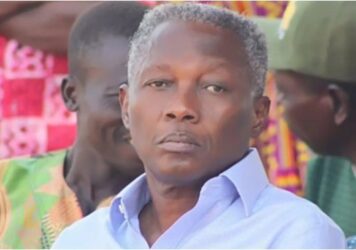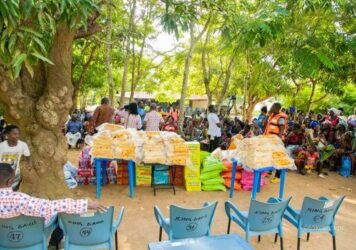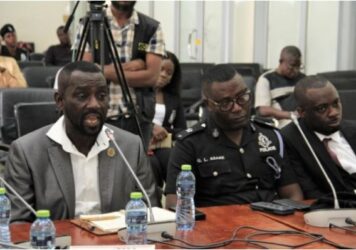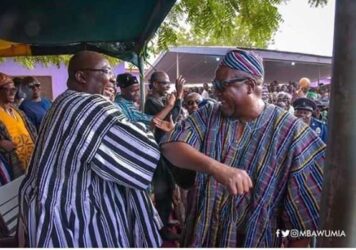Loans Or Grants? What Works For Youth Businesses? | Features
[ad_1]
The argument about grants versus loans for assisting young businesses is a complex one, especially in light of the unique challenges and opportunities that young business owners have to deal with. In this piece, we explore the experiences of the Mastercard Foundation-funded Absa Young Africa Works project, shedding light on the ways in which these financial support mechanisms are driving the success of youth businesses across a range of sectors.
A common observation at the Absa Young Africa Works project is that when we support youth-owned businesses, they eventually employ youth to help them manage their business. This observation aligns with the views of international organizations including UNICEF and the World Economic Forum. This may be because young people put value on easily engaging and collaborating with one another, and often bring fresh perspective and energy to their roles within business ventures. Noticing this broader trend of young business owners employing fellow youth makes it ever more crucial to support youth-owned businesses to thrive.
For these young entrepreneurs, the Absa Young Africa Works project offers not only cash support but also meaningful opportunities for business management skill development and mentoring. Over the past three and half years, the project has facilitated economic growth and job creation for at least 15,000 young Ghanaians by supporting over 5,000 MSMEs and smallholder farmers. With a dedicated focus on bringing youth businesses to the level of growth necessary for sustainable economic growth, the project has so far supported 2,553 youth-owned enterprises – 45% of all financial assistance recipients – with a total disbursement of GHS147 million.
The Case for Loans
In Ghana, loans remain an indispensable lifeline for a lot of young companies since they provide the working capital required to make investments in territorial expansion, operational efficiency, workforce acquisition and revenue growth. Through the Absa Young Africa Works project, many young business owners and smallholder farmers have access to financing through which they can expand their current operations. By the end of first quarter this year, about GHS10 million had been directed towards youth businesses. More importantly, 93% of disbursed funds reached youth businesses operating in the agribusiness and retail sectors. The project’s financial support products have empowered these young entrepreneurs to demonstrate financial responsibility and accountability, laying a more solid foundation for sustainable business growth in the years to come.
Our subsidized loans have enabled borrowers, especially at the micro level to increase their impact. In the agriculture sector for example, at least 2,100 smallholder farmers, who are averagely 29 years old, have cultivated a total of 5,456 acres of farmland. At the age of just 18, sixteen of the youngest smallholder farmers have already accepted agriculture as a sustainable source of income, leading us to anticipate an increase in the current average farm size of 2.5 acres cultivated per farmer. It shows that Ghanaian youth are interested in agriculture and with the right blend of financial and technical support, they would thrive. Between 2022 and 2023, there was a 26% increase in the total number of MSMEs that transitioned from micro to small and medium status under the Absa Young Africa Works project. Such growth is indicative that reducing interest rates and providing collateral-free facilities is key to driving the growth of MSMEs, even in the short-term.
The Case for Grants
The opposite viewpoint is that, for youth businesses in the early stages of development, grants play a crucial role in providing the initial support needed to evaluate innovative ideas and approaches, stabilise operations and pursue expansion. In response, a Fintech and Agritech grant programme was launched in 2022 by the Absa Young Africa Works project. By 2023, grants totalling GHC2 million had been awarded to ten youth-led businesses, enabling the young beneficiary entrepreneurs to take advantage of new opportunities, solve pertinent operational challenges related to logistics and workforce management, and establish themselves in the Ghanaian and wider African market.
The impact of the Absa Young Africa Works project extends beyond financial metrics, with tangible outcomes seen in job creation, revenue generation, and sectoral growth. All of the enterprises we have so far supported through our grant program are led by young people and have begun to expand both in terms of workforce and revenue. One of the grantees for 2023, Sommalife, was able to procure about 300,000kg of shea nuts from 1,500 farmers, 80% of whom were female. This agritech company reported that the grant from the project enabled them to hire more field agents to speed up the commodity sourcing process using their proprietary app, TreeSyt. The company was able to establish 10 community shea nut nurseries and has so far raised 10,000 seedlings with the aid of our grant support. With this established capacity, this business has now been elevated to the point where their application for a loan amount of GHS3 million under the Absa Young Africa Works project to scale their soyabean aggregation activities in 2024 has been granted. Only 4 years since its establishment, Sommalife’s business growth is translating into the employment of 100 young Ghanaians by a company owned and ran by two young Ghanaian entrepreneurs.
Wonfliki, an agritech company that focuses on offering automated aerial spraying services using Agri spray drones, is another grant recipient. With our support, the business was able to obtain a satellite license from the Ghana Civil Aviation Authority and initiate exploratory conversations with prospective agribusinesses in Ghana and beyond. Big Samps Market, a woman-owned agritech firm, has been able to acquire a van, employ a driver, and hire four operational support staff members in order to better support the company’s bulk food item buying, packaging, and delivery services. These examples emphasise the transformational possibilities of targeted grant support for businesses, which otherwise cannot access credit to unlock their potential.
Balancing Loans and Grants
The success of the Absa Young Africa Works project lies in its ability to strike a fine balance between loans and grants, recognizing that businesses face diverse challenges and require tailored financial solutions to meet their diverse needs. The uncollateralized lending model adopted by Absa Bank as a result of this project remains a game-changing financial vehicle that has assisted several youth businesses. In another light, collateral-free lending also requires basing the credit worthiness of target businesses on their financial history and corporate governance practice. Every so often, startups and young businesses run by youth lack such a sufficiently extensive history to put them in a position where they can access loans. This invariably brings to the fore the need for grants support for businesses with exceptionally compelling cases. Accordingly, we posit that businesses in their early stages of development ideally require grant support and capacity building to bring them to a level where they have in place effective operational structures and stabilised cashflow. Without tangible support we cannot simply expect such businesses to transform into sustainable and profitable ventures. And as such businesses grow, it will be essential to introduce them to collateral-free loans at subsidized interest rates, to enable them access bigger working capital values and achieve the highest possible accelerated impact.
Leveraging the assistance of impact donor Mastercard Foundation, the outcomes so far from Absa Young Africa Works project represent the effectiveness of a balanced approach to supporting youth businesses. This is how the economies of Ghana and other African countries can be developed at a step-up rate. It is our optimistic expectation that this vital learning will inform business development strategies and future project designs targeted at MSMEs.
Source: Innocent Kodzo Awumey, Development Expert and Project Manager, Absa Young Africa Works Project. Prince Kay-Takrama supports monitoring, evaluation and learning on the Absa Young Africa Works Project.
| Disclaimer: Opinions expressed here are those of the writers and do not reflect those of Peacefmonline.com. Peacefmonline.com accepts no responsibility legal or otherwise for their accuracy of content. Please report any inappropriate content to us, and we will evaluate it as a matter of priority. |
Featured Video
[ad_2]
Source link













Leave a Reply